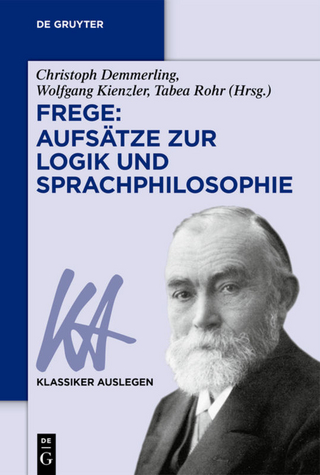
Question-Reply Argumentation
Praeger Publishers Inc (Verlag)
978-0-313-26789-5 (ISBN)
This first full-length study of logical fallacies, errors, faults, illicit attacks, blunders, and other critical deficiencies in interrogation and reply has been written in the tradition of informal fallacies in logic. It is especially valuable, readable, and interesting because of the 139 case studies it presents, many of these case studies come from political debates and some from interviews, legal cross-examinations, and other sources. Walton uses these challenging examples of tricky, aggressive, argumentative, or fallacious questions to develop coherent and pragmatic guidelines for criticizing questionable questions (and in some cases their replies) on logical grounds. Among the types of problematic questions analyzed are: the traditional so-called fallacy of many questions, illustrated by the famous Have you stopped beating your wife?; black and white questions; terminologically loaded questions; and questions containing personal attacks. These and other types of problematic questions as well as evasive replies and replying to a question with a question are studied. Critical errors of reasoning are identified and analyzed by developing context-based, normative models of reasonable dialogue in which a questioner must have freedom to ask informative and probing questions, and the respondent must be constrained to give reasonably direct, not overly evasive answers.
In this era of negative and evasive political campaigning, with candidates employing skillful tactics of manipulating public opinion to assure election rather than taking clear stands and seriously debating issues in an informed and sincere manner, Question-Reply Argumentation is especially relevant reading for those who take democracy seriously. The methods used reflect a significant shift from earlier semantically based theories to current pragmatic, dialogue-based models, and will be of interest to logicians and linguists. The volume's conclusions should challenge some current preconceptions. Recommended reading for courses in logic, speech communications, linguistics, philosophy of language, areas of political science relating to political discourse and debate, courses on questioning in cognitive psychology, and courses on critical thinking in education.
DOUGLAS N. WALTON is Professor of Philosophy at the University of Winnipeg and is currently a Killiam Research Fellow (1987-1989) of the Canada Council. His writings on various aspects of philosophy, pragmatics, linguistics, ethics, logic, and education have been published frequently and widely since 1971 and include numerous articles in scholarly journals as well as contributed chapters to books. He is the author of Informal Logic and Practical Reasoning and coauthored Argument: The Logic of the Fallacies. He also wrote Ethics of Withdrawal of Life Support Systems: Case Studies on Decision-Making in Intensive Care (Greenwood Press, 1983 and paperback by Praeger Publishers, 1987), Physician Patient Decision-Making (Greenwood Press, 1985) and Arguer's Position (Greenwood Press, 1985). In 1989-1990, Walton will be Fellow-in-Residence at the Netherlands Institute for Advanced Study in the Humanities and Social Sciences.
Introduction
Basic Assumptions, Goals and Methods of Inquiry
Have You Stopped Beating Your Spouse?
Black-and-White Questions
Terminologically Loaded Questions
Personal Attack in Question-Answering Dialogue
Relevant Answers
Replying to a Question with a Question
Games of Dialogue
Pragmatic Dimensions of Dialogue
Rules, Goals, and Strategies of Questioning
Bibliography
Index
| Erscheint lt. Verlag | 9.11.1989 |
|---|---|
| Reihe/Serie | Contributions in Philosophy |
| Sprache | englisch |
| Maße | 156 x 235 mm |
| Gewicht | 822 g |
| Themenwelt | Geisteswissenschaften ► Philosophie ► Logik |
| Geisteswissenschaften ► Philosophie ► Sprachphilosophie | |
| ISBN-10 | 0-313-26789-8 / 0313267898 |
| ISBN-13 | 978-0-313-26789-5 / 9780313267895 |
| Zustand | Neuware |
| Informationen gemäß Produktsicherheitsverordnung (GPSR) | |
| Haben Sie eine Frage zum Produkt? |
aus dem Bereich


